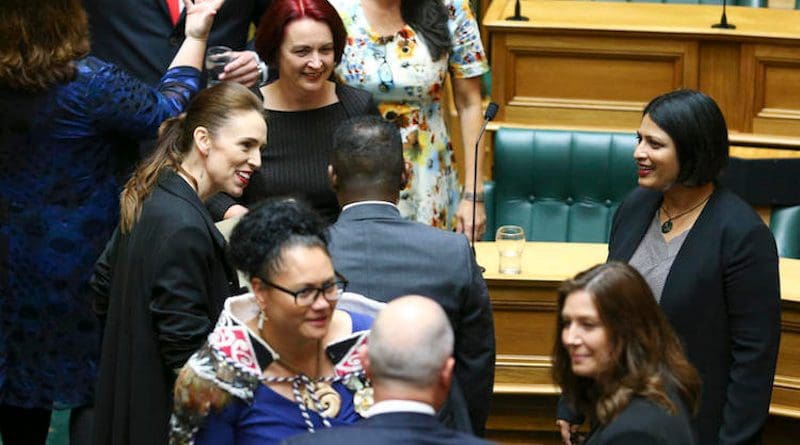Share Of Women Parliamentarians Reaches ‘All-Time High’ – OpEd
By IDN
By Jamshed Baruah
There is a long way to go to achieve gender parity. But a new report reveals that the share of women parliamentarians worldwide reached more than 25 per cent in 2020 marking a historic step. Women in Parliament report was launched on March 5 ahead of the International Women’s Day on March 8.
“It gives me great pleasure to announce that for the first time, women now account for more than a quarter of parliamentarians worldwide,” Secretary-General of UN partner the Inter-Parliamentary Union (IPU) Martin Chungong said at the UN Office in Geneva. ”The global average of women in parliament has now reached 25.5 per cent.”
“While we celebrate and welcome this all-time high, we feel that progress is painstakingly, or even excruciatingly, slow”, Mr. Chungong said. ”At the current rate, it will take another 50 years before we can achieve gender parity in parliament. And of course, we all agree that this is not tenable, it’s not acceptable.”
The global organization of national parliaments, the IPU, has been tracking women’s participation in parliament for decades, enabling it to measure progress and setbacks.
The global proportion of women in parliament increased by 0.6 points following the elections in 2020 compared to the previous year.
The IPU chief singled out Rwanda, Cuba and the United Arab Emirates for having achieved gender parity, with women accounting for 50 per cent or more parliamentary seats.
Mentioning Rwanda as a role model for women’s participation in government, Mr. Chungong said ”we have seen evidence that where countries have come out of conflict and have had the opportunity to re-found the foundations of society, the legal framework of society, there is a greater chance of promoting gender equality because this is something that has been articulated at the international level and it’s an opportunity for the society as a whole to sit down and say ‘this is what we want in the constitution’.”
The IPU considers quotas as the key to progress, as evidenced by elections held in 2020. Electoral gender quotas were applied in 25 of the 57 countries that had parliamentary renewals last year. On average, parliaments with quotas elected nearly 12 per cent more women to single and lower chambers, and 7.4 per cent more women to upper chambers.
The IPU Secretary-General said: “Where women are involved in law-making on specific issues, the outcomes are better in terms of health care, in terms of the way even parliaments are functioning, making parliaments more gender-sensitive.”
The Women in Parliament report shows that the COVID-19 pandemic also influenced elections and campaigning last year.
”The COVID pandemic has had a negative impact on elections, in some countries those elections were postponed”, Mr. Chungong said. ”In others, in some 50 countries where elections took place, we saw that women faced all manners of impediments as a result of the pandemic that exacerbated existing gender imbalances in politics”.
According to the IPU, online violence against women has become even more widespread, threatening women’s participation in public life. However, the shift to remote, technology-driven parliamentary practices may have a potentially positive long-term impact on women in parliament.

